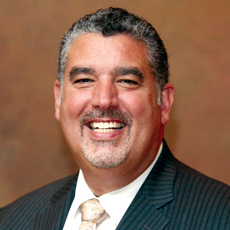
Knowing you’re doing the right thing is one thing, but having others tell you that you are doing the right thing can be very affirming. It can have a ripple effect, not only on healthcare delivery and patient experience, but also on marketplace perception and the bottom-line. Now, there is a protocol in place to gauge how well hospitals, long-term care residences, and other settings are providing spiritual care.
Last year, my organization, HealthCare Chaplaincy Network, introduced the “Excellence in Spiritual Care Award.” The goals are multi-fold: to further integrate spiritual care into healthcare, standardize best practices, and raise the bar on spiritual care as a critical aspect of whole-person care.
Why now? The initiative mirrors a growing emphasis on quality in healthcare and an increasing body of robust research demonstrating the positive impact of spiritual care, including overall patient satisfaction and better patient quality of life near death. Plus, more people want spiritual support than actually receive it, especially during times when it can make a pivotal difference—during an illness, at end of life, grieving a loved one.
Even though the Joint Commission and multiple palliative care guidelines address spiritual care needs, missing are specifics on how to move from point A to point B. In a field that suffers from fragmentation, standardization in training, competencies and practices can help spiritual care reach new heights. Doing so can help move the field toward an equal footing with other aspects of healthcare that have benchmarks in place.
With care for patients and their families at stake, we have issued a challenge to organizations to meet HCCN’s proprietary standards of excellence in spiritual care. So far, three institutions have achieved this prestigious award — two hospitals and, most recently, Interim HealthCare Hospice of Greenville, S.C. Others across the country are in various stages of the evaluation process.
We’ve based the national standards on professional literature and our decades-long history as a leader in spiritual-related clinical care, education and research. The 15 standards include employing an interdisciplinary approach to spiritual care, engaging in quality improvement projects, and strategically deploying chaplaincy care resources.
A detailed three-step process leads to the award. First, an applicant uses HCCN’s self-assessment tool to see how its spiritual care delivery stacks up to the standards. Next, HCCN specialists consult with the institution to develop a strategic action plan to build on strengths and improve weaknesses. Ultimately, an organization must meet eight of the 15 standards to receive the award.
The initiative is garnering lots of interest in hospices, hospitals and in long-term care settings. Some applicants might already have the right practices and teams in place, others may need to stretch, but for all, the process promises to highlight the value of spiritual care. In the end, the overarching objective is for this extensive exercise to be a learning experience that results in excellence, optimizing comfort and meaning for patients and their families.
But that’s not all. Let’s not minimize the boost in employee morale that such an accolade can carry with it. Improving patient satisfaction and being able to promote a point of differentiation in the marketplace can also produce financial rewards. Achieve an honor, and opportunities —i.e., more clients, more qualified staff—may come knocking. Domino effects like this happen all the time in myriad industries, from architecture to entertainment to health care.
For Ray Schroeder, president and owner of Interim HealthCare of the Upstate South Carolina, the Excellence in Spiritual Care Award is especially meaningful since he started the hospice division in 1996 after his mother, Grace, received positive medical and spiritual care from a small hospice in Florida. He said the award confirms his agency’s commmitment to spiritual care. Being the first hospice in the nation to achieve the distinction bears out that he has done what he had set out to do.
That same validation awaits other organizations that have the courage and commitment to turn the lens inward and make any necessary changes to get up to speed. Doing it right can go a long way in offering a value-added service that helps your community, your institution, and the health care field in general, and meets the rising demand for compassionate and effective spiritual care.
Rev. Eric J. Hall is president and CEO of HealthCare Chaplaincy Network, a global nonprofit organization based in New York that provides education, research and clinical care related to the integration of spiritual care in health care.



